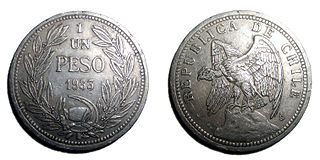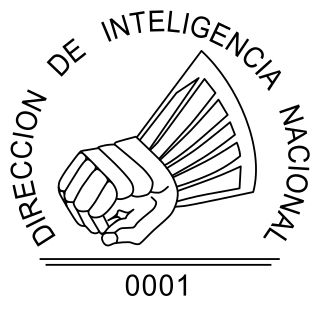 W
WOn 22 July 1971 Salvador Allende and Alejandro Lanusse, the Presidents of Chile and Argentina, signed an arbitration agreement. This agreement related to their dispute over the territorial and maritime boundaries between them, and in particular the title to the Picton, Nueva and Lennox islands near the extreme end of the American continent, which was submitted to binding arbitration under the auspices of the United Kingdom government.
 W
WThe Chicago Boys were a group of Chilean economists prominent around the 1970s and 1980s, the majority of whom were educated at the Department of Economics of the University of Chicago under Milton Friedman and Arnold Harberger, or at its affiliate in the economics department at the Pontifical Catholic University of Chile. Upon their return to Latin America they adopted positions in numerous South American governments including the military dictatorship of Chile (1973–1990). As economic advisors, many of them reached high positions within those. While the Heritage Foundation credits them with transforming Chile into Latin America's best performing economy and one of the world's most business-friendly jurisdictions, critics point to drastic increases in unemployment that can be attributed to counter-inflation policies implemented on their advice. Some such as Nobel laureate Amartya Sen have argued that these policies were deliberately intended to serve the interests of American corporations at the expense of Latin American populations.
 W
WThe Chilean land reform was a process of land ownership restructuring that occurred from 1962 to 1973 in different phases. For much of the 20th century agriculture was one of the most backward sectors of Chilean economy. The land reform was initially supported by Chilean right, centre and left political parties plus the Catholic Church and the United States. After the 1973 Chilean coup d'état the ruling right-wing dictatorship initiated a counter-reform that reverted part of it and directed Chilean agriculture into a "neoliberal" model.
 W
WThe Dirección de Inteligencia Nacional or DINA was the secret police of Chile during the dictatorship of Augusto Pinochet. The DINA has been referred to as Pinochet's Gestapo. Established in November 1973 as a Chilean Army intelligence unit headed by Colonel Manuel Contreras and vice-director Raúl Iturriaga, the DINA was then separated from the army and made an independent administrative unit in June 1974 under the auspices of Decree 521. The DINA existed until 1977, after which it was renamed the Central Nacional de Informaciones or CNI.
 W
WA right-wing authoritarian military dictatorship ruled Chile for seventeen years, between September 11, 1973 and March 11, 1990. The dictatorship was established after the democratically-elected socialist government of Salvador Allende was overthrown in a US-backed coup d'état on 11 September 1973. During this time, the country was ruled by a military junta headed by General Augusto Pinochet. The military used the alleged breakdown of democracy and the economic crisis that took place during Allende's presidency to justify its seizure of power. The dictatorship presented its mission as a "national reconstruction." The coup was the result of multiple forces, including pressure from conservative and women's groups, certain political parties, union strikes and other domestic unrest, as well as international factors. According to an article written by lifelong CIA operative Jack Devine, although it was widely reported that the CIA was directly involved in orchestrating and carrying out the coup, subsequently released sources suggest a much reduced role of the US government.
 W
WThe "Miracle of Chile" was a term used by economist Milton Friedman to describe the reorientation of the Chilean economy in the 1980s and the effects of the economic policies applied by a large group of Chilean economists who collectively came to be known as the Chicago Boys, having studied at the University of Chicago where Friedman taught. He said the "Chilean economy did very well, but more importantly, in the end the central government, the military junta, was replaced by a democratic society. So the really important thing about the Chilean business is that free markets did work their way in bringing about a free society." The junta to which Friedman refers was a military government that came to power in a 1973 coup d'état, which came to an end in 1990 after a democratic 1988 plebiscite removed Augusto Pinochet from the presidency.
 W
WThe Papal mediation in the Beagle conflict followed the failure of negotiations between Chile and Argentina, when, on 22 December 1978, the Argentinian Junta started Operation Soberanía, to invade Cape Horn and islands awarded to Chile by the Beagle Channel Arbitration. Soon after the event, Pope John Paul II offered to mediate and sent his personal envoy, Cardinal Antonio Samoré, to Buenos Aires. Argentina, in acceptance of the authority of the Pope over the overwhelmingly Catholic Argentine population, called off the military operation and accepted the mediation. On 9 January 1979, Chile and Argentina signed the Act of Montevideo formally requesting mediation by the Vatican and renouncing the use of force.
 W
WProject Cybersyn was a Chilean project from 1971 to 1973 during the presidency of Salvador Allende aimed at constructing a distributed decision support system to aid in the management of the national economy. The project consisted of four modules: an economic simulator, custom software to check factory performance, an operations room, and a national network of telex machines that were linked to one mainframe computer.
 W
WThe Revolutionary Left Movement is a Chilean left-wing political organization and former urban guerrilla organization founded on October 12, 1965. At its height in 1973, the MIR numbered about 10,000 members and associates. The group emerged from various student organizations, mainly from University of Concepción, that had originally been active in the youth organization of the Socialist Party. They established a base of support among the trade unions and shantytowns of Concepción, Santiago, and other cities. Andrés Pascal Allende, a nephew of Salvador Allende, president of Chile from 1970 to 1973, was one of its early leaders. Miguel Enríquez Espinosa was the General Secretary of the party from 1967 until his assassination in 1974 by the DINA.